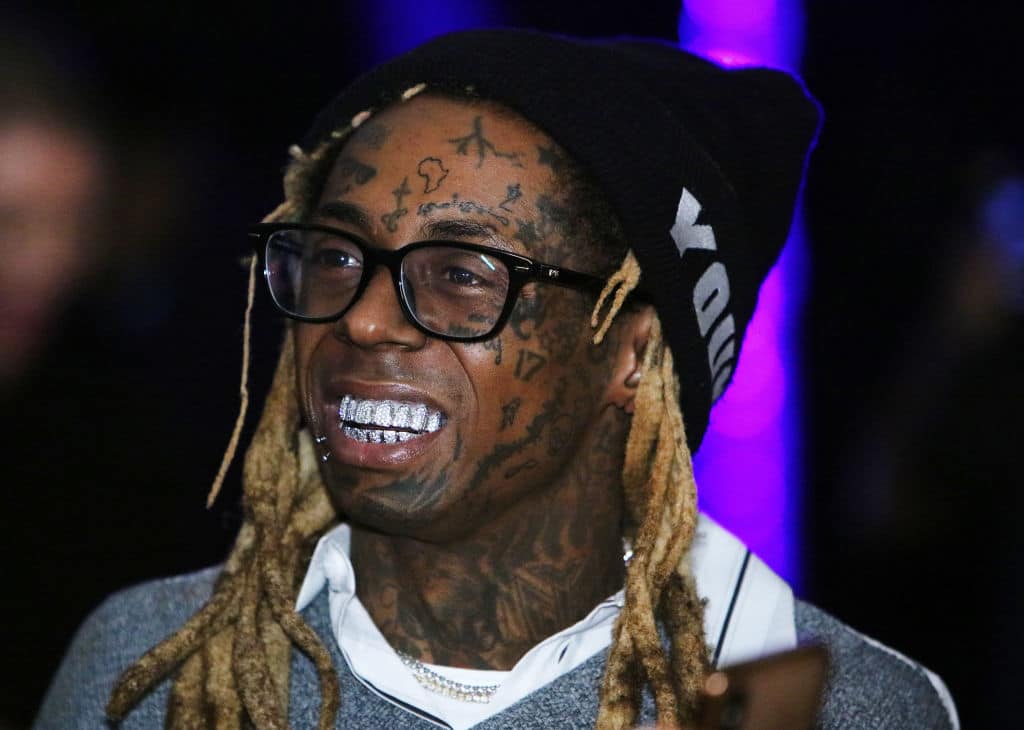
Hip-hop superstar Lil Wayne sat down and got real candid about his past mental health struggles — including a suicide attempt when he was only 12 years old. The 5-time Grammy-winner hopes that sharing his story will inspire others to take their mental health seriously and speak up when they need help.
Lil Wayne, whose real name is Dwayne Michael Carter, Jr., spoke with host, commentator, and activist Emmanuel Acho for his Uncomfortable Conversations series and reflected on surviving the suicide attempt as a child.
"[I'm] hoping I can help anyone else out there who's dealing with mental health problems by... being vulnerable," the "No Ceilings" rapper shared. "To me, I look at it by being brave and stepping up."
Lil Wayne said he realized he had mental health struggles at the age of 10. He went on to explain that his thoughts were everywhere after one of his aunts told him that he wouldn't be able to work on his rap career after getting in trouble with his mom for skipping class when he was 12.
"I picked up the phone, I called the police," the 38-year-old rapper revealed. "Yes, I knew where she put her gun and it was in her bedroom. And so I went in her bedroom, grabbed the gun. I already made the phone call, looked in the mirror."
Lil Wayne revealed that he pointed the gun to his head before he got a little too scared.
"Then I said, 'F**k it,'" he said while pointing a finger at the left side of his chest. "Biggie was on. I'm looking in the mirror. So, you could look through the mirror and the television was behind me. So, I was watching the video through the mirror. 'One More Chance' was on. And think Biggie was already gone or something."
He continued, "So, I was looking, I was like, ‘You know what?' Start thinking I had to get myself mad and noticed that I didn't have to, that's what scared me."
"How I knew I had a mental health problem was when I pulled the trigger," the "6 Foot 7 Foot" rapper said, explaining that he aimed for his heart.
Lil Wayne said that he was... in shock so he didn't feel the pain and recalled waking up to the police knocking on the door. He managed to make his way to the door and knocked back by kicking it.
He said "thank God I'm still here for a reason."
Lil' Wayne is not alone in his suicidal thoughts. Thank God he didn't go through with it like this growing list of suicide deaths from notable young African Americans recently including:
- Mayor of Hyattsville, Maryland Kevin Ward, 44
- Former Miss USA and attorney Cheslie Kryst, 30
- Walking Dead Star Moses Moseley, 31
- Ian Alexander, Jr., 26, son of Regina King
Studies show that between 2014 and 2019, the suicide rate increased by 30% for Black individuals (from 5.7 to 7.4 per 100 000 individuals) and 16% for Asian or Pacific Islander individuals (from 6.1 to 7.1 per 100 000 individuals).
For more than a decade, suicide rates have been increasing in Black children and adolescents, and a new study says the sharpest rise occurred among young girls.
The study, published in September 2021 in the Journal of the American Academy of Child and Adolescent Psychiatry, found that just over 1,800 Black children died by suicide between 2003 and 2017, and while most of the deaths were among boys, especially those ages 15 to 17, the gender gap is narrowing. The suicide rate of the girls increased an average of 6.6 percent each year — more than twice the increase for boys, the study said. Nearly 40 percent of the girls were 12 to 14 years old, indicating that this age group may need additional attention or different types of interventions.
Another study, also published this year, said that over the last two decades, the biggest increase in self-reported suicide attempts was among Black adolescents. And in 2018 Dr. Arielle H. Sheftall, the lead author of the study, and other researchers revealed that Black children under 13 are dying by suicide at nearly twice the rate of white children the same age.
Why is this happening? There are no definitive answers. Dr. Sheftall and her colleagues pulled data from a state-based surveillance system to better understand the characteristics of those who died and factors that may have led to their deaths.
They found that most of the Black children who died by suicide did not have a current mental health concern, but of those who did, the younger children were far more likely than the older kids to have been diagnosed with attention deficit hyperactivity disorder, or A.D.H.D. The younger kids were also more likely to have experienced problems in school or within their families.
We thank Lil' Wayne to bring light to this important issue in our community and hopefully, this brings up more conversations to help change these statistics for the better.
If you or anyone you know may be contemplating suicide, please call the National Suicide Prevention Lifeline at 800-273-8255. Help is here.









